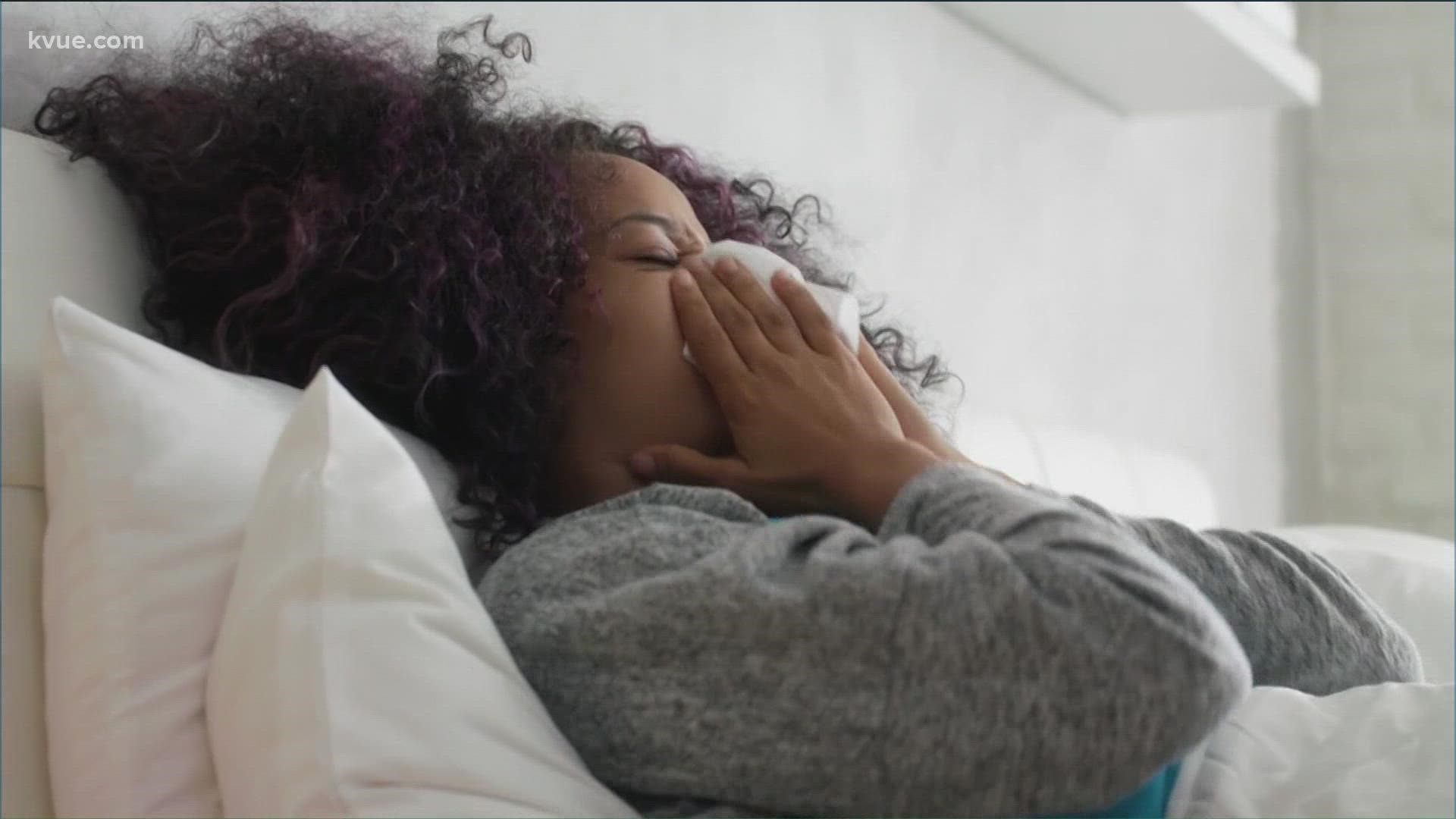AUSTIN, Texas — When it comes to flu season, activity across Central Texas has been lower compared to recent years. But in just the last few weeks, local doctors say they've seen a slight increase in cases.
RELATED: Today's Allergy Report
Dr. Lisa Gaw, pediatrician and director at Texas Children’s Urgent Care Westgate, said that, with kids back in the classroom, it's important for parents to know the difference between flu and COVID-19 symptoms.
If your child is sick, experts say to get tested for both. Dr. Gaw said normally with the flu, there are some symptoms that develop slowly.
"I will say your stereotypical flu case ... it kind of comes out of nowhere. It's kind of all of a sudden. All the symptoms kind of hit at once, like you're feeling fine, and then your child the next day often has the fever and the headache and the sore throat," said Gaw.
When it comes to prevention, Dr. Gaw said COVID-19 measures have prepared the public on how to safely protect themselves from viruses.
"Social distancing and masking. We're all very well versed in hand hygiene. So if you weren't feeling well or you had COVID, you stayed home. And a lot of these measures are also very effective against the flu," said Gaw.
Health officials also remind the public to get vaccinated. Children as young as 6 months old can get vaccinated against the flu. Measures like covering a cough or sneeze using your elbow are also easy steps children can take when in school.
Dr. Gaw said for families whose children are home sick with the flu, make sure to monitor for fever and for their breathing to be stable. If symptoms don't improve, seek medical care.
"Some more common complications we'll see in kids are things like an infection or sometimes a pneumonia. So, if they're not proving, that's another reason to touch base with the pediatrician again," said Gaw.
A general rule of thumb is if your child is fever free, not vomiting or has diarrhea for 24 hours, kids are in the clear to return back to school.
"But again, just kind of encouraging your child, reminding them to practice good hygiene, cover your cough and sneeze, wash your hands afterwards," explained Gaw.
PEOPLE ARE ALSO READING:

